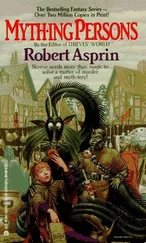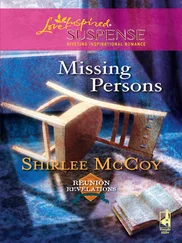He began to wash the grapes, let them sit in a colander to drain. Then he set out the plates, turned on the coffee percolator Sima liked to use for guests. She would be disappointed that he would not join his story to hers on tape. But here he had made something else, a small but elegant meal, laid out on a clean cloth, for the two of them to share with strangers. The table was ready. For this Sima would be glad. She would acknowledge his efforts with few words, not history words, not memory words, but the same words she gave him every day. It looks nice. Thank you. Did you put out enough sugar?
He stepped out of the kitchen to breathe. The door to the living room was closed, and a white line of light emanated from the crack at the threshold. Inside, his wife was making her testimony. Chaim pressed his ear to the door. If he stayed quiet, he knew he would hear her bright voice.
March 1997
T HEY HAD BRUISED HIS throat and vocal cords when they ripped out the breathing tube, so on the day Pavel met his sister for the first time in seven years, he could announce with sincerity that he could not speak. He could not speak! It was true. He made the statement in a pained rasp that was only slightly more exaggerated than the day-to-day mutterings he gargled to his wife. He was thirty pounds thinner than he had been before the bypass surgery, and he had been a trim man to begin with; worse, his lung capacity was down, perhaps forever, from the effects of fifty-six years of smoking. He was weak. Anyone could see that.
But not so weak. He had agreed to the reunion only if Hinda and his cousin Mayer would come to the small club at which the fine-textile traders on Seventh Avenue did business, where he had a membership and they did not. He had a tab in the dining room and would pay for lunch. Neither could get in without him, although he brought Mayer often. He was proud of the membership, even if he used it only to play chess or cards with the retirees. He hadn’t had it when they’d had the business together, and even now Hinda’s husband couldn’t get one. Pavel knew someone on the committee, and that someone was loyal to Pavel. Everyone knew what had happened.
Mayer had found a parking space right at the corner, and Pavel had sat in the passenger seat, looking straight ahead through the windshield. It was too cold and windy for him to be standing, waiting. But Hinda came more or less on time. Mayer saw her from across the street, ankles wobbling despite the low heels. Tiny, tinier than before-Fela had heard that she had put on weight, but this was not the case-and whiter, her hair unconvincingly red near her pale forehead. When they got out of the car, Pavel shook her hand. She let her hand go limp and turned her eyes away from his, past his ear, as if she was hoping for someone else to come down the street and rescue her. He didn’t want to kiss her, and she looked like she did not want to kiss him. That was fine. He could not speak; he told her and coughed.
Hinda said, “All right.”
They went up the three entryway stairs, Pavel ahead, holding on to the railing with one hand, onto the lapel of his serge coat with the other. He put two feet on each step before lifting to the next. No need to rush. Inside, Mayer and Hinda waited before the security man while Pavel dug into his wallet and flipped through the cards for his membership identification. He went slow, and why not? What did the other two have to do with themselves?
Mayer couldn’t bear the silence. In Yiddish, he said, Do you have it, do you have it?
Pavel gave him a glare and exhaled heavily. The moment he got sick, it was as if Pavel could do nothing. Who was the eldest, after all? He had the card, of course he had the card; he signed them in with his own pen.
Mayer pointed out to Hinda where they were going at each step, as if the place belonged to him. Here’s the conference room, he said, and here the lounge, and here the dining room. This is where we eat. Pavel thought he could hear her joints stiffening; perhaps she did not want Mayer to speak Polish so publicly. But better than Yiddish, no? An ugly language, she had frequently said, and Pavel had felt fear, at all those holiday dinners and Thanksgiving lunches, that his children would believe her. Sha! he would say to her, his jaw jutting forward. And she would mutter something bitter under her breath. Her husband, that thief, that swindler, was no better, but he had the excuse, linked as it was to his cosmopolitan pretensions, of speaking Yiddish like an ox. In Pavel’s family they had learned how to speak it, and what’s more, how to write it. It was a pride, not a shame.
Mayer drew out a chair for Hinda in the dining room. Hinda took off her own coat; she wore a pleated wool skirt and an olive sweater, what looked to be silk knit. Pavel hung his coat on the coatrack, tipped his hat onto the coat’s collar. The room was bright: wood tables, no cloths, plain menus. They were next to the window facing out on the street. The waiter was not familiar, but Pavel didn’t care. They got ice water. Hinda ordered coffee.
Pavel looked at the center of the room. There was a friend sitting there, someone from years ago, from camp. Hersh waved a hand. Pavel lifted his in a half-salute. They had morning coffee together once in a while, more now since Pavel was out of the business. Hersh dealt in damask, and Pavel had had occasion to buy in small supply at prices advantageous to Hersh. Pavel had not minded mixing business with pleasure. Business was pleasure, or at the very least, loyalty. Business was loyalty. To work among materials like silks and chintzes and wools, soft objects that would become intimate coverings, blankets, curtains, upholstery for the home, garments for the body, one had to take seriously the idea of trust and loyalty. Family.
Pavel turned to his own table. His sister, ordering tuna fish salad like a teenager, rubbed at her napkin as she talked to the waiter. Skinny hands, skinny fingers. And nervous, so nervous. Her wrists seemed to shake. Mayer still attended to the menu. Always difficult for him to choose. Pavel ordered the same thing every time, a fresh turkey sandwich on rye, with onions, no tomatoes. He asked for extra mustard on the side. Now more than ever he needed the taste of something sharp. Otherwise it was simply impossible to stimulate his stomach to digest, to keep the food down. And he had to keep it down. The thought of vomiting scared him. His throat could not take the trauma.
They began to talk, only in Polish, gossip, children, acquaintances, funerals, with a few words tossed in English. “Needs a vacation,” nodded Mayer, talking of his son; “nervous breakdown,” said Hinda, in reference to her daughter-in-law. She almost seemed pleased to say it, thought Pavel. Imagine! But maybe it was true. Pavel thought he had heard it from someone else. There were grandchildren. Hinda’s were younger than Mayer’s. She just got a new one, it seemed. How was Hinda with an infant? He couldn’t remember from the early years of his nephews. They had been difficult teenagers, hippies almost, at least the older one, but as infants, he could not remember them or their parents. He lived with them then, when he first came to this country and they had been resettled three years, maybe four. He lived with them, but he could not remember how she was with infants.
The food came. Pavel looked around for his extra mustard. He motioned for Hinda and Mayer to start without him, but the waiter brought it and added coffee for Hinda.
You look very thin, Pavel, said Hinda. Like you’ve lost too much weight.
He was so sick, said Mayer. So sick, it was terrible. A short operation, a long recovery.
Pavel glared, but Mayer wasn’t looking. It wasn’t her business!
Читать дальше











